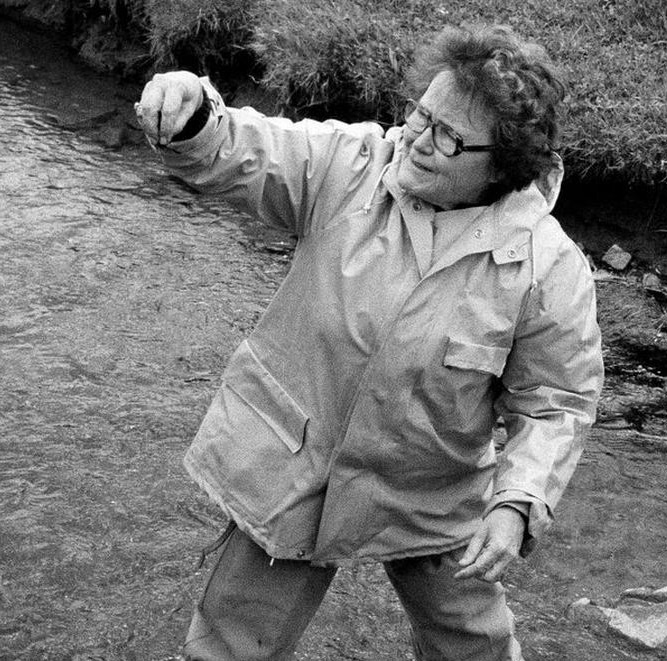Ruth Patrick’s father had an abiding interest in the natural world and encouraged his daughter’s interest in science from an early age, taking her and her sister on walks in the woods to collect pieces of nature and putting them in a can, she recalled.
At 7 years old, she received a microscope from her father. “He would make slides with drops of the water samples we had collected, and I would climb up on his knee and peer in. It was miraculous, looking through a window at a whole other world,” recounted Patrick.
Patrick built her career around research on thousands of species of single-cell algae called diatoms, which float at the bottom of the food chain. Patrick found that some species of diatoms lived in water that was heavily contaminated with organic material like human sewage, while others thrived among chemical pollution. She showed that measuring the kinds and numbers of diatoms revealed the type and extent of pollution in a body of water, and her method of measurement has been used around the world to help determine water quality. The belief that biodiversity is the chief indicator of water health is now known as the Patrick Principle.
By Jen Santisi







